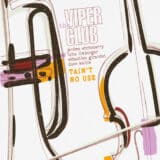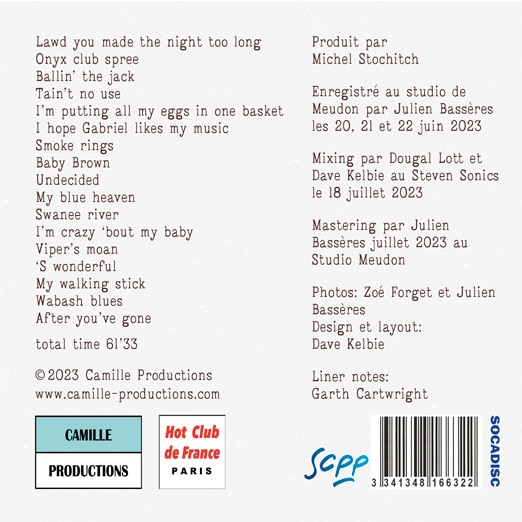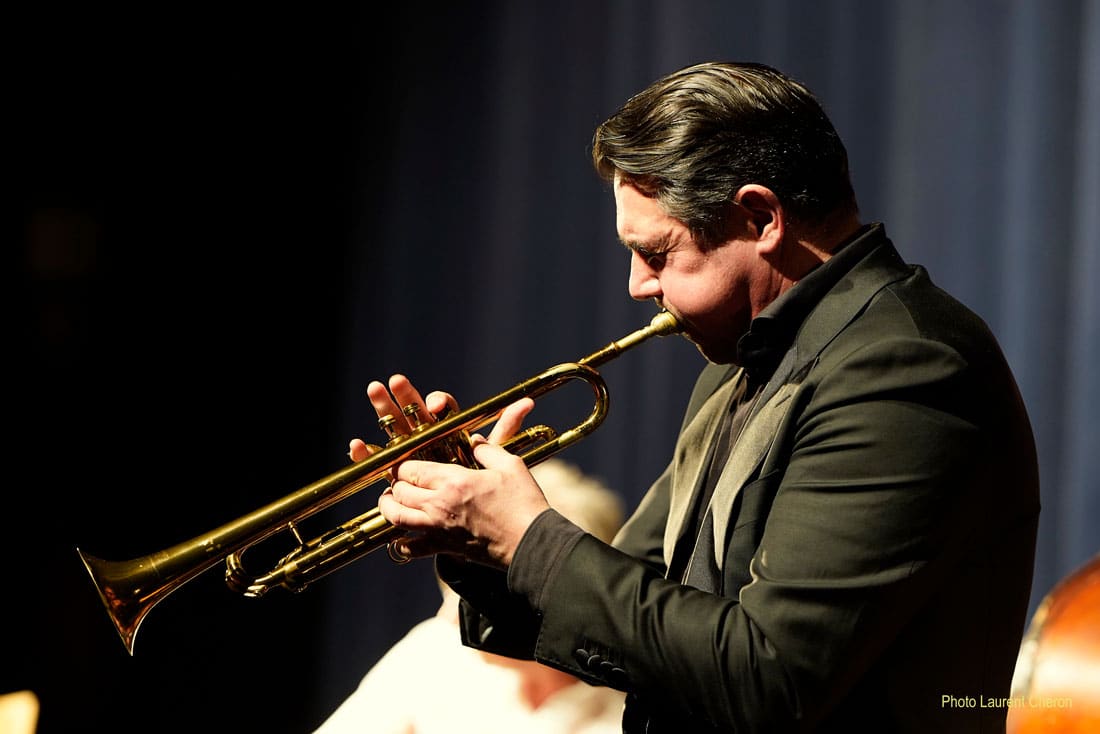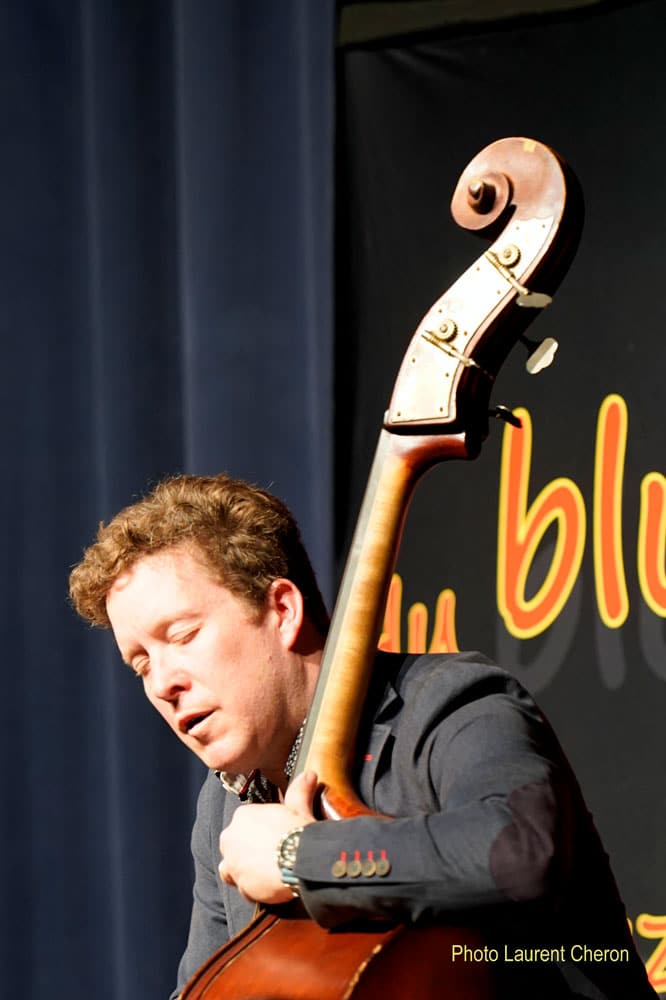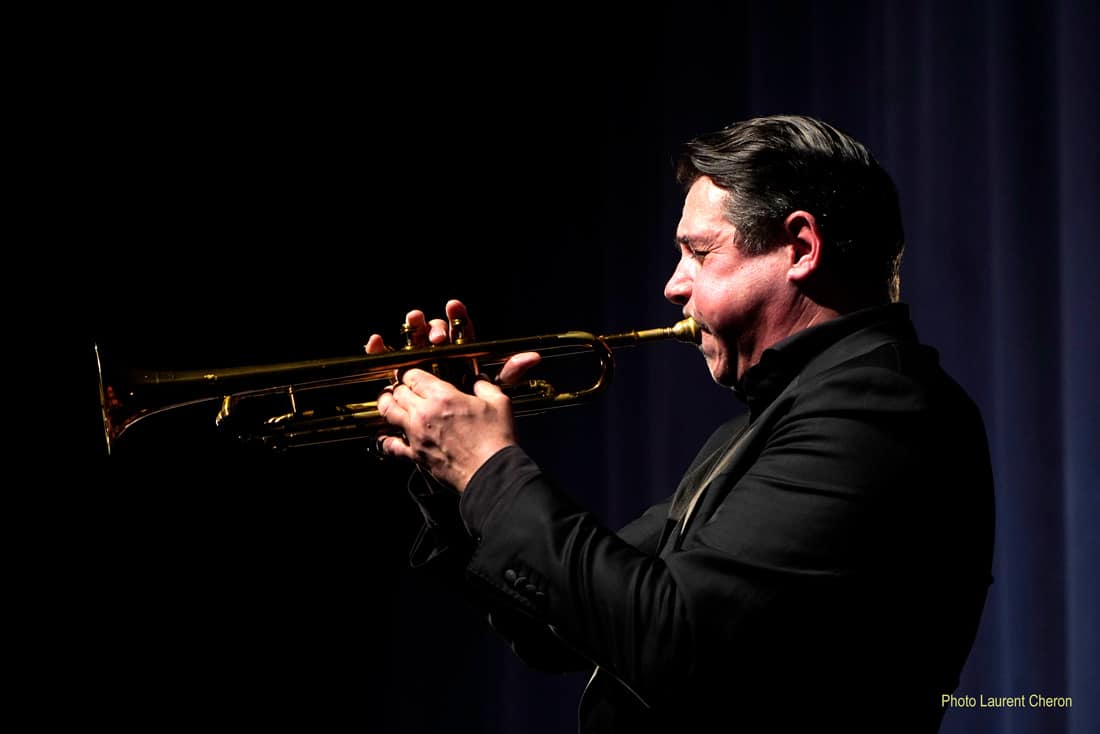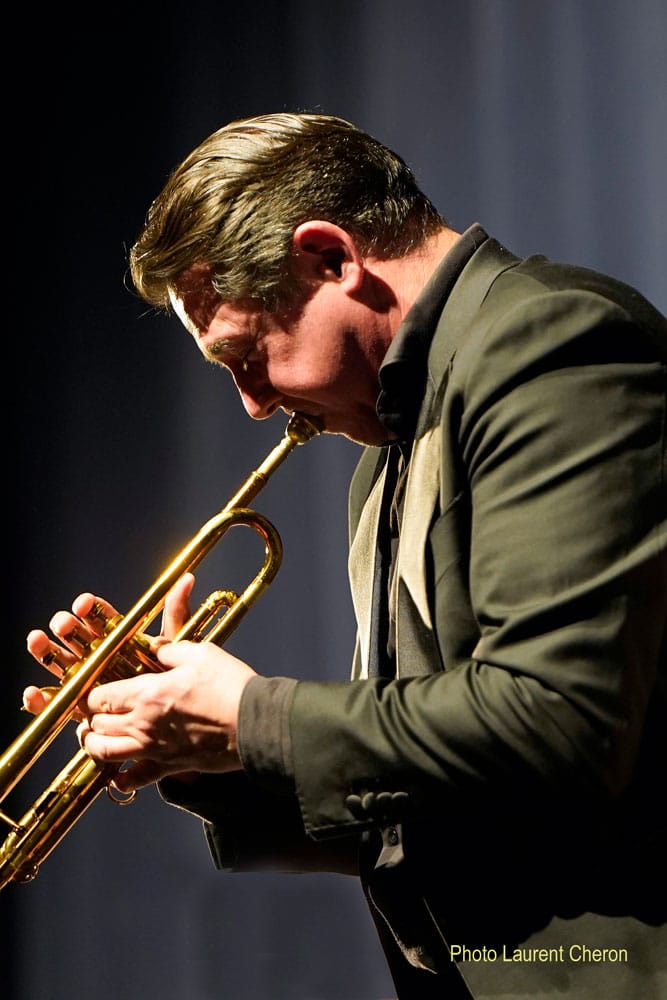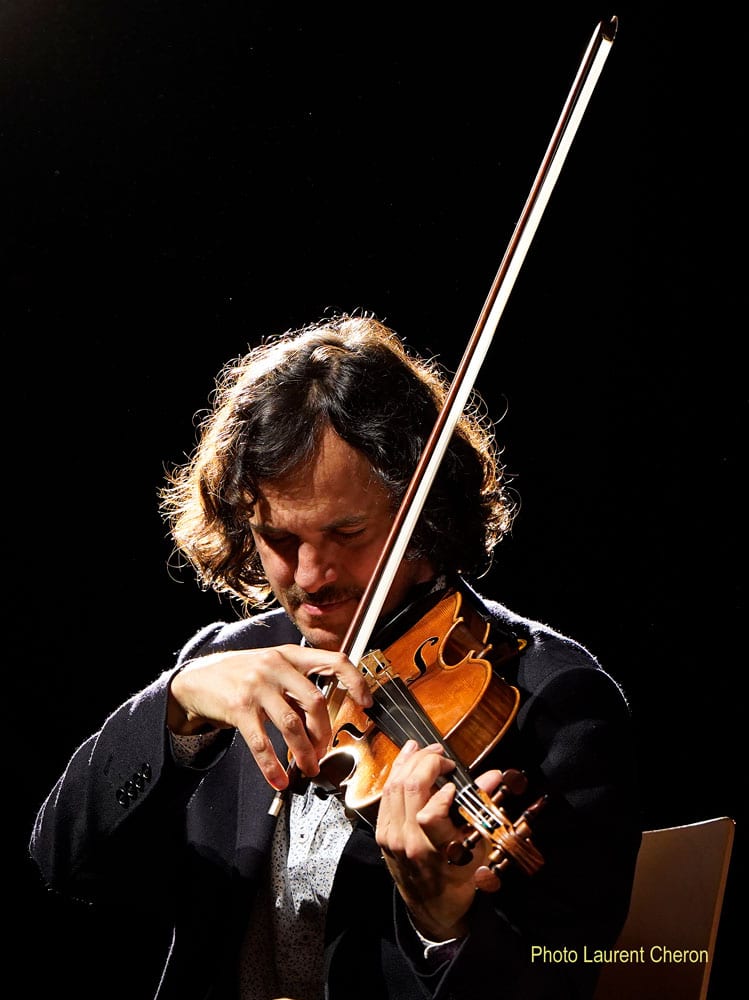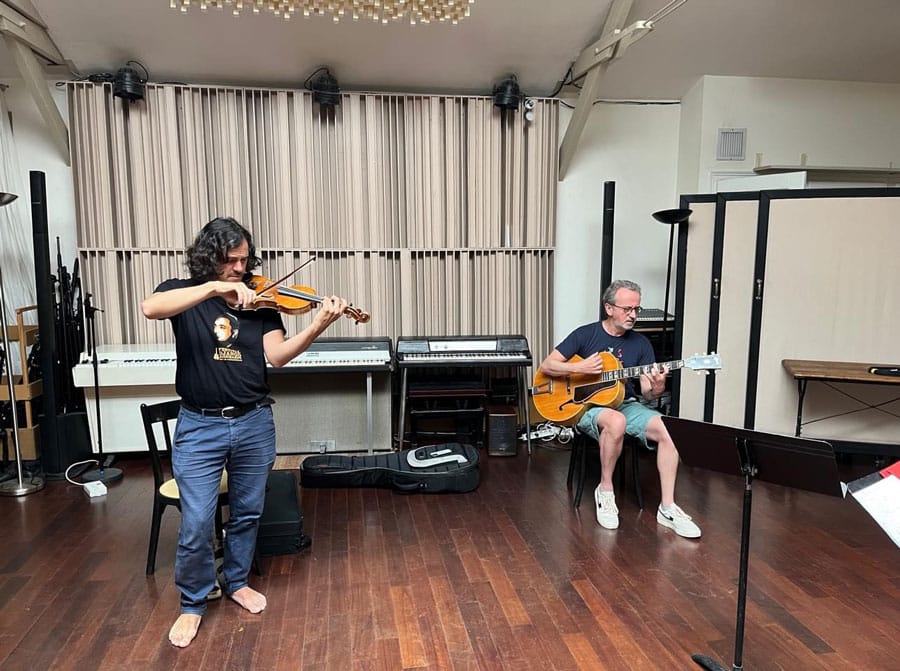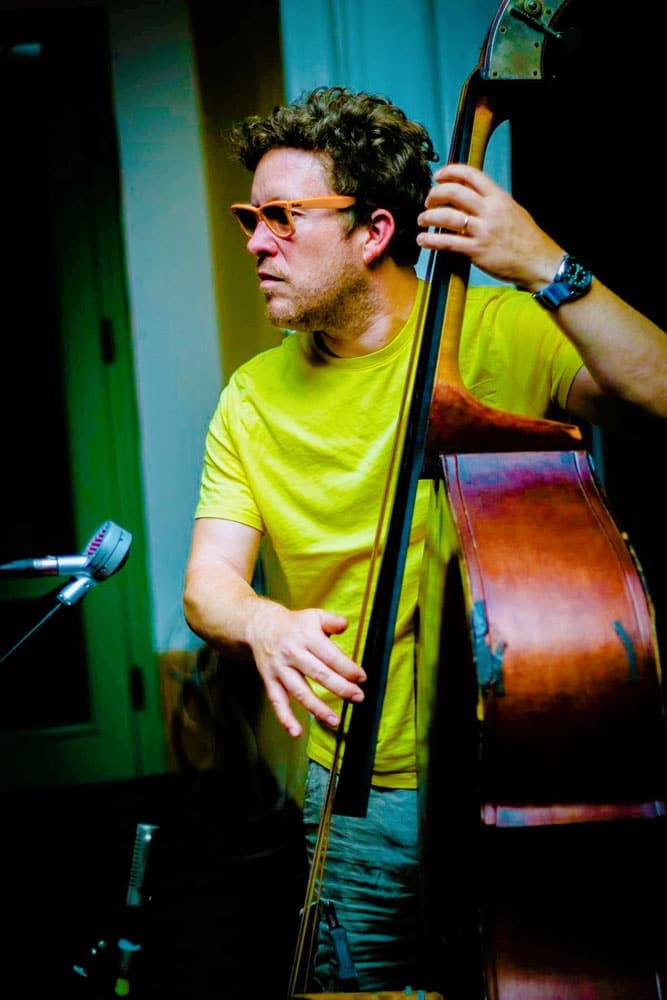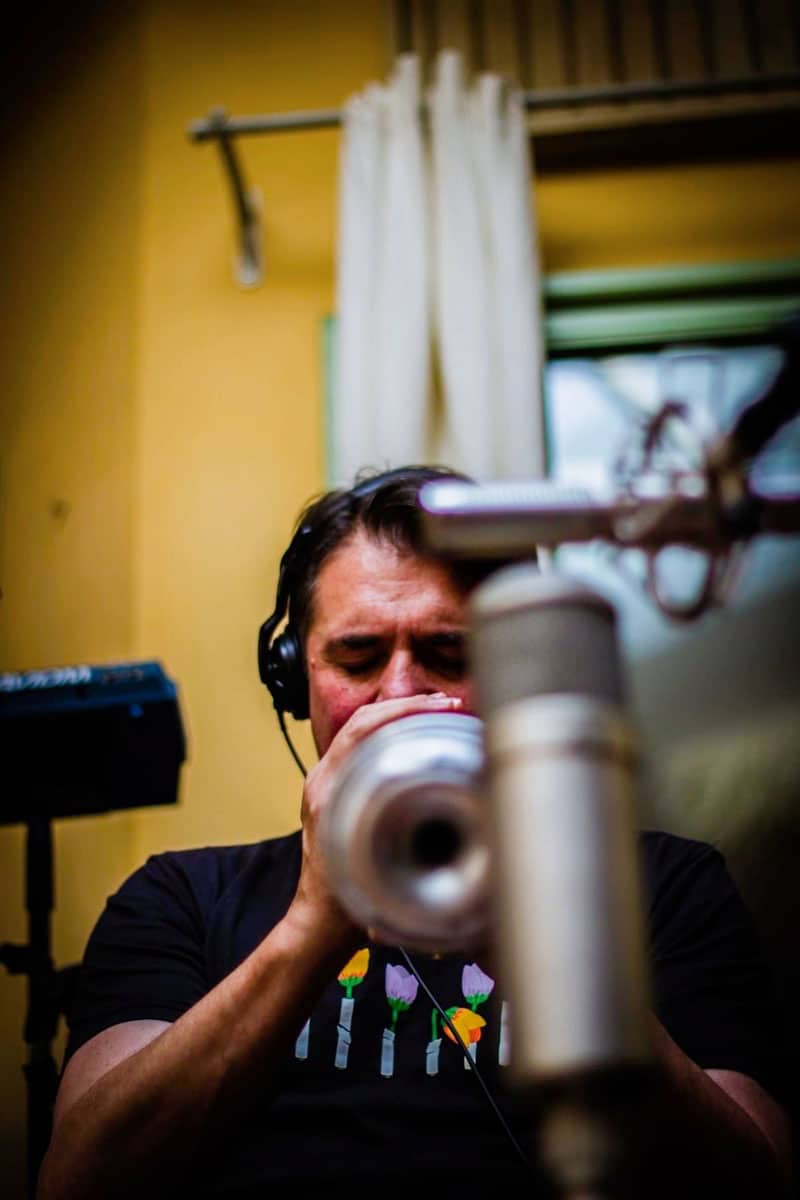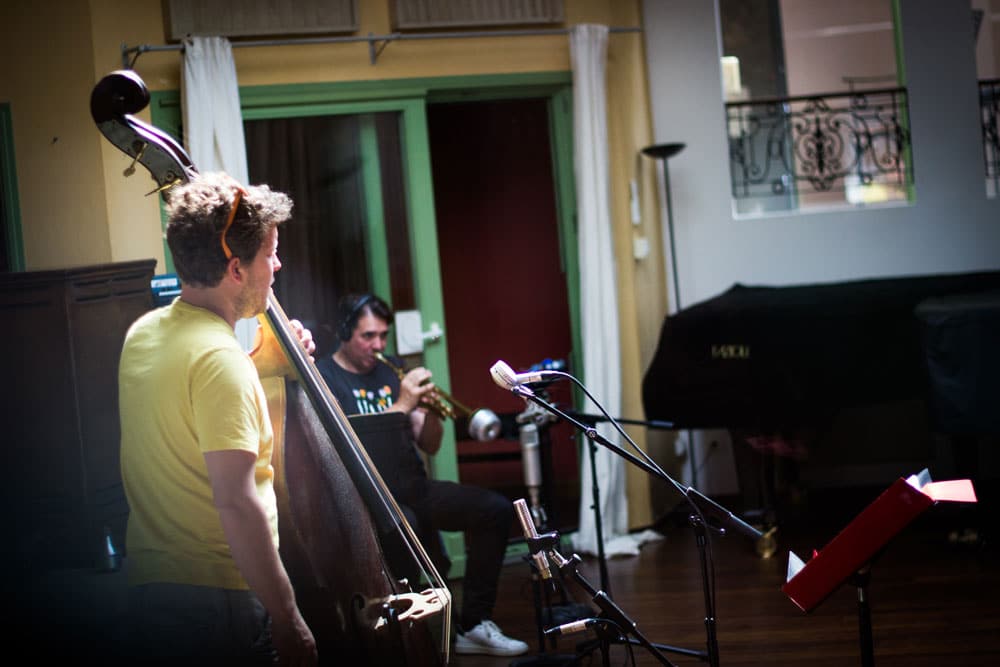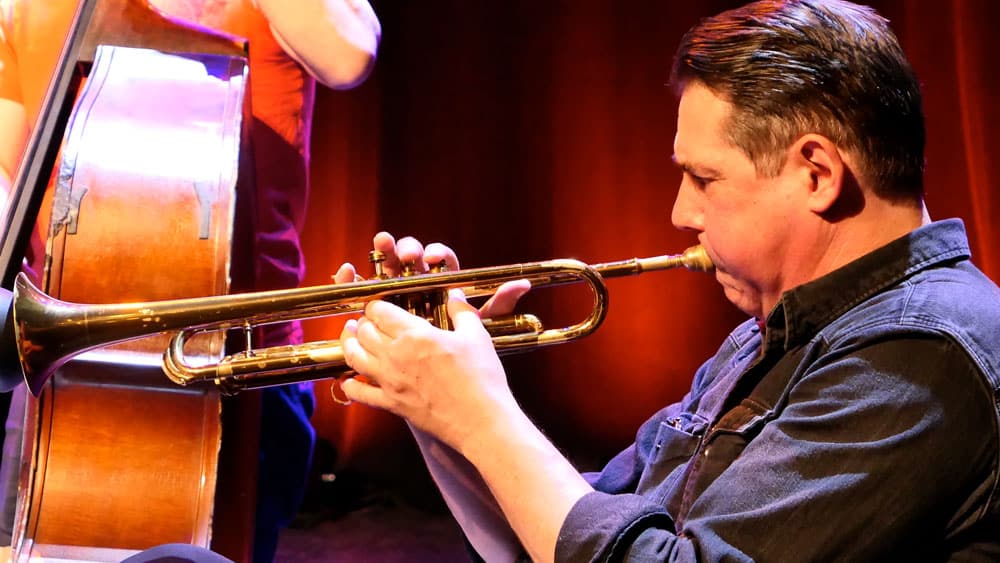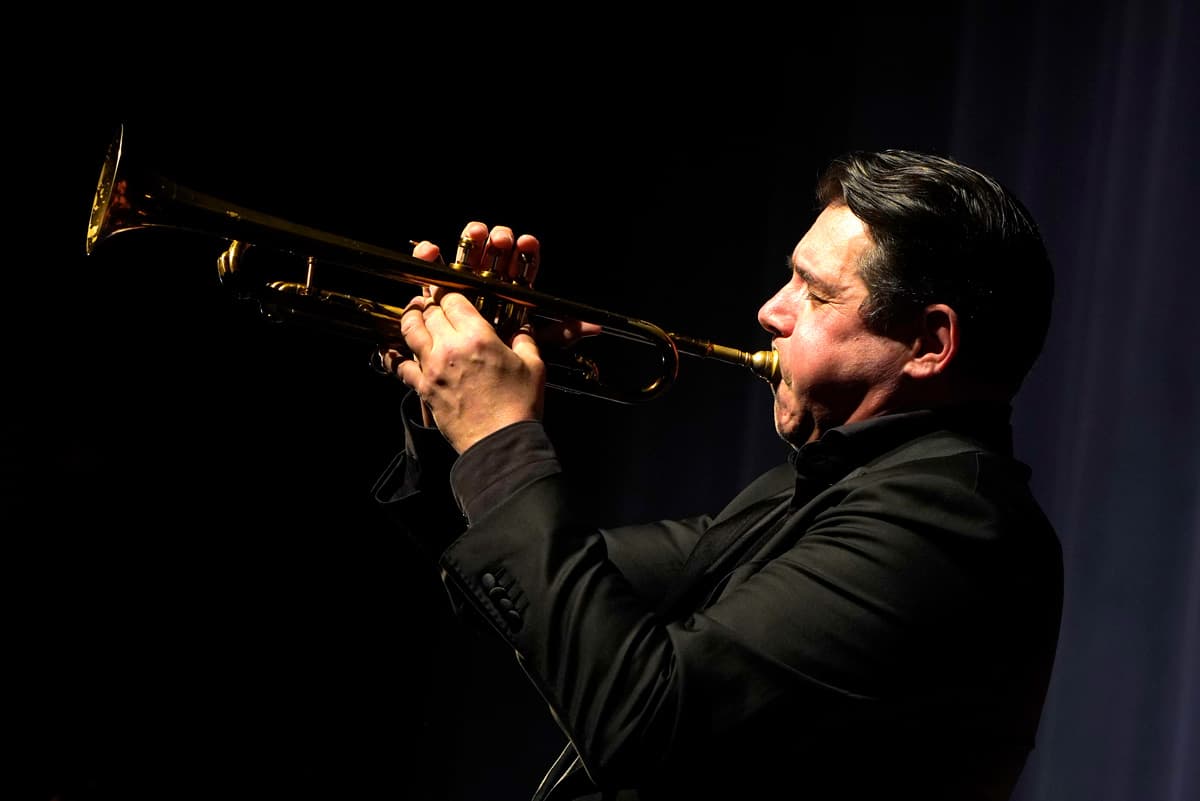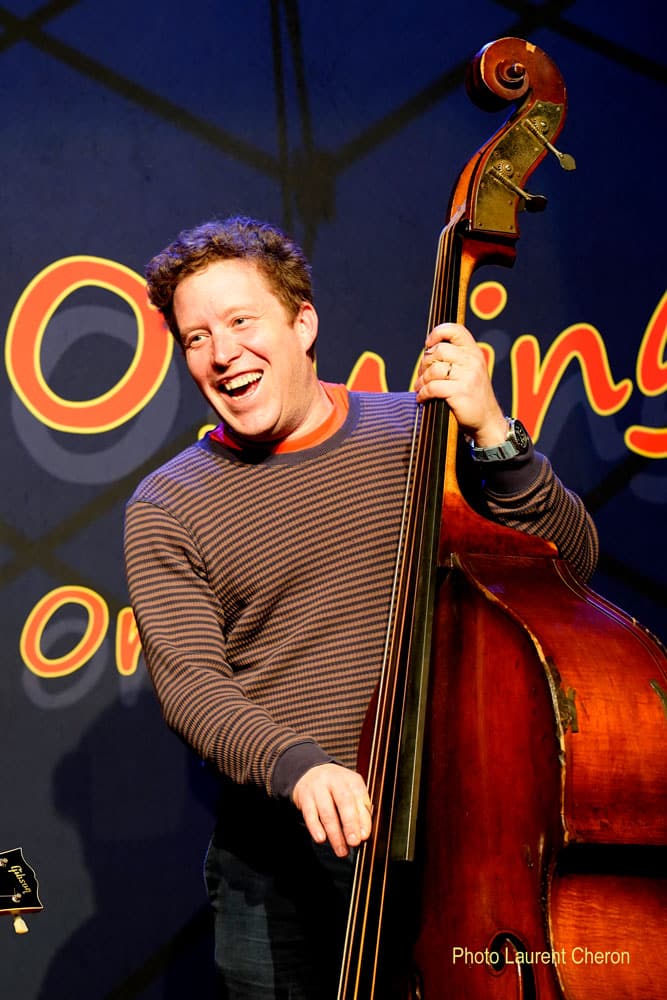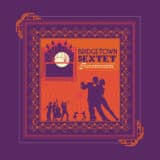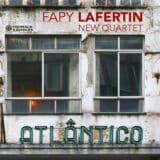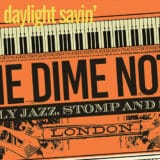Viper Club
A very European group of surely four of the most recognisable international Classic jazz musicians in recent years.
With a vast range of interests and a collective résumé which reads as a who’s who of current early jazz, the Viper Club quartet delve into the vault of the infamous Onyx Club. Some of the most compelling, undeniably hard-swinging recordings to come out of New York in the mid 30’s by the fabulous ensemble led by Stuff Smith, one of the most distinctive voices in jazz and preeminent jazz violinists in history..
JEROME ETCHEBERRY – Trumpet
TCHA LIMBERGER – Violin
DAVE KELBIE – Guitar
SÉBASTIEN GIRARDOT – Double Bass
THE TIMES UK
RAUL DA GAMA C
FRANCIS COUVREUX FR
BEBOP SPOKEN HERE UK
LA GAZETTE BLEUE D’ACTION JAZZ FR
JAZZ LIVES US
SYNCOPATED TIMES US
JUST JAZZ UK
LE BLOG DE PHIIPPE VINCENT FR
TCHA LIMBERGER needs little introduction. Award winning multi-instrumentalist and vocalist acclaimed and much loved across musical genres, celebrated within the jazz and world/folk music worlds equally as a singer and instrumentalist. One of the most important figures in folk music of the Carpathian basin as well as being a prominent figure in the jazz world known for world class original improvisations and powerful swinging vocals.
Jerome Etcheberry is fresh from the success of his widely celebrated homage to the great trumpet master Louis Armstrong, Satchmocracy. Stuff smith cited Armstrong as his primary influence and Etcheberry, probably Europe’s most exalted trumpeter, stamps his mark of excellence firmly on this project with his customary exquisite tone, timing and energy.
It’s hard to imagine a drumless ensemble without DAVE KELBIE and SEBASTIEN GIRARDOT completing the musical circle. This highly respected rhythm section has performed with numerous projects on main stages of festivals across the globe. Not least Django a la Creole and Don Vappie & Jazz Creole. Lauded universally for their flexibility & variety of swing and the solidity of their accompaniment, Tcha’s description of this long-standing and proven bi-nome seems even more appropriate in this setting: “The Rolls Royce of Rhythm Sections”.
TRACKLISTS & RECORDINGS
PRESS
THE TIMES UK
FRANCIS COUVREUX FR
BEBOP SPOKEN HERE UK
RAUL DA GAMA C
JAZZ HOT FR
LA GAZETTE BLEUE D’ACTION JAZZ FR
JAZZ LIVES US
COULEURS JAZZ FR
LE BULLETIN DU HCF FR
LITERN@UTE FR
THE OBSERVER UK
COULEURS JAZZ FR
SUNDAY TIMES UK
CLASSICA FR
JAZZ DA GAMA CANADA
REVIEWS
ALBUM REVIEW. LE BULLETIN DU HCF FR 29.02.2024
..this album is a perfect success that is definitely not to be missed!
Let me tell you right away, this album is a perfect success: good idea, solid concept, excellent casting. This approach refers to another success, when Claude Tissendier’s sextet tackled John Kirby’s repertoire about forty years ago. In both cases, we are in the spirit rather than the letter, in the evocation rather than the reconstruction, and all this without overcomplicating things.
The small orchestra that Stuff Smith led at The Onyx was a sextet with a complete rhythm section featuring Cozy Cole on drums and a front line reduced to two elements (not to mention a famous little monkey): Stuff Smith’s violin and Jonah Jones’ trumpet. Here, the balance is different, the rhythm section comprising only two instruments: Dave Kelbie’s guitar and Sebastien Girardot’s double bass. This rhythm section, very present, very coherent between a walking bass evoking John Kirby (and even his tuba) and the rich sound of an Albert Casey disciple (up to solos in chords), provides unwavering support to the inspiration of the melodists, both in very good shape.
At the heart of the plot (or at least I suppose so), Jerome Etcheberry brilliantly takes on the role of Jonah Jones while remaining Etcheberry, alternating between beautiful interventions in the low register of the instrument during the exposition of certain themes and a very convincing drive in the high register when he ensures the crescendo progression of the lively pieces. There’s a bit of Armstrong in his sound (which shouldn’t surprise anyone), particularly noticeable in “I’m putting all my eggs in one basket,” “S’wonderful,” and “Wabash blues”… and even here and there the presence of a truly “New Orleans” pulse.
His violinist companion is an astonishing character, abundantly awarded and pertinently defined in the booklet as “closely linked to Hungarian/Romanian folk music” and “also practicing high-flying jazz”. High-flying is indeed the right word for Tcha Umberger, whose inspiration seems inexhaustible and whose style, except for his dynamism, owes little to Stuff Smith but rather approaches the best of Michel Warlop, with even more panache. Let’s add that he sings (with talent) in half a dozen pieces, including the captivating “Lawd, you made the night too long.” He sometimes plays on two strings (as Stuff Smith liked to do) with great success, as in “My blue heaven” and especially “Swanee river.” Originally from Central Europe, he perfectly understands jazz and truly thrives in it, sometimes with humor… which doesn’t hurt (Baby brown)!
The trumpet-violin complicity is impressive, more perceptible even than in the originals of 1936. “Tain’t no use” (which gave its title to the album) is one of the most eloquent illustrations – when Etcheberry exposes the theme, supported by Umberger’s variations – but these connivances and intuitions are present almost everywhere, including when the trumpet accompanies this or that vocal, always with great relevance (“Lawd, you made the night too long,” “I’m crazy about my baby,” “My walking stick” – where the vocal is followed by a superb solo). All this is framed by logical, swinging, and welcome little arrangements. They contain finds, like the alternation of tempos in “S’wonderful” or the original approach of “I’m crazy about my baby,” or even the atmosphere at the beginning of “Swanee river” or “Smoke rings” (nicely whistled, on a particularly juicy tempo), or even the change of tone at the end of “Wabash blues.” By the way, this “Wabash blues” is particularly interesting: perfect, relaxed tempo, inspired trumpet passage in stop-time, lively and brilliant finale. And speaking of perfect tempo, that of “Viper’s moan” is not bad either!
Not all the pieces constituting this album come directly from Stuff Smith’s orchestra repertoire, but we find with pleasure and well-executed some bravura pieces of the Onyx Club boys, among which the famous “I’m putting all my eggs in one basket” (one of the best pieces of the record) and “I hope Gabriel likes my music.” But it is worth highlighting the unity of atmosphere – faithful to that of the original orchestra – that reigns throughout the collection, which concludes with a brilliant “After you’ve gone” and a riff dialogue between trumpet and violin. The only drawback that could be mentioned is that the double bass recording is a bit loud. If that bothers you, simply reduce the bass a bit. But overall, you’re faced with a CD that is definitely not to be missed!
LAURENT VERDEAUX
ALBUM REVIEW. JAZZ HOT FR 30.01.2024
..reaches an unexpected intensity for a current recording
Large veins, the familiar currents of the general public, but also a myriad of veins that branch out and are waiting to be explored, rediscovered, and further deepened. The association between Stuff Smith (1909-1967) and Jonah Jones (1909-2000) from 1936 to 1940, within the Onyx Club Boys led by the former, is among the treasures spotted by Jazz Hot in its February-March 1939 issue but already forgotten. Violinist Stuff Smith, distinguishing himself from the airy lyricism of Stéphane Grappelli or Eddie South, was also a remarkable showman and a singer inspired by Louis Armstrong, a common influence with Jonah Jones, whose trumpet playing is marked by Satchmo, to the point that he was nicknamed “King Louis II.” The exceptional qualities of these two soloists did not escape Jazz Hot or Charles Delaunay, who dedicated two beautiful portraits to the trumpeter (issue no. 48, 1950), also featured on the cover of issue no. 85 in 1954, and to the violinist (issue no. 94, 1954).
Eighty years later, to pay tribute to them, The Viper Club was formed (whose name is inspired by Stuff Smith’s 1936 success, “You’se a Viper”), a quartet around the radiant personality of Tcha Limberger with the collaboration of Jérôme Etcheberry, Dave Kelbie, and Sébastien Girardot: “viper,” in the slang of 1930s Harlem, referring to a marijuana user.
The interest of the record is that this tribute is not content to be a mere reproduction of the repertoire of Stuff Smith and the Onyx Club Boys in spirit but a true interpretation dominated by the overflowing personality – and rare in our narrow 21st century – of Tcha Limberger, who on the violin recalls the evident kinship of spirit and heart between Gypsy and African-American roots, merging in the breath of swing and the spirit of the blues, especially as his rough sound and energetic attack recall those of Stuff Smith. Another dimension of their proximity is undoubtedly linked to Stuff Smith’s “fundamentally bohemian” temperament, as noted by Charles Delaunay. In singing, Tcha remains “natural” like his African-American predecessors, through his commitment and the way he pushes his voice without affectation (“Lawd You Made the Night too Long”). On material that sometimes borrows from the New Orleans tradition (the rhythm and the trumpeter are versed in this New Orleans color as much as in Django’s tradition), “Tain’t no Use” is magnified by Tcha Limberger’s Gypsy counterpoints, surprising in depth of expression, spontaneity, and inventiveness. The music thus reaches an unexpected intensity for a current recording, outside the standardized time of 2023. A good example of creative reactivation of memory that relies on the freedom of the great artist that Tcha Limberger is!
JEROME PARTEGE
ALBUM REVIEW. THE CANADIAN MAGAZINE C 17.01.2024
This is the proverbial album to die for
More than a decade ago, pulling no punches and taking no prisoners in an interview in The Guardian, the violin virtuoso Nigel Kennedy lamented about: “the ‘protocol’ training by music colleges, which ‘doesn’t actually help people use their brains or their ears – two important factors in music’”. He said: “A lot of classical musicians are steered away from that in order to learn ‘the method’. How many talented young kids are going into these colleges nowadays all over the world? How many come out speaking as an individual?”
Mr Kennedy went on to say: “Jazz greats such as Coleman Hawkins, Fats Waller and Louis Armstrong didn’t have these lessons. They just learned from experience. Then they got something completely unique … whereas now we’ve got factory lines of pianists and violinists coming out.” Speaking of jazz, it’s highly unlikely that Mr Kennedy would have categorized these musicians – trumpeter Jérôme Etcheberry, multi-instrumentalist Tcha Limberger, contrabassist Sébastian Giradot and, of course, the guitarist Dave Kelbie – coming together here as the Viper Club to evoke the celebrated partnership of Stuff Smith and Jonah Jones whose “joyous, inventive music making as the Onyx Club,” Garth Cartwright’s booklet notes tell us “opened-up the sound of swing in the mid-to-late 1930s.”
It also seems unlikely that aficionados of the great 17-track conspectus of swing repertory preserved for posterity by virtuoso musicians such as Stuff Smith and Jonah Jones – indeed repertory played by Louis Armstrong, and a host of other legends of the art of jazz of that era. It is also a fact that musicians who came after the so-called Swing Era, who refused to budge from spreading the unabashed joy in swing-time were referred to – deprecatorily – as “moldy figs”. But again, in the words of Mr Kennedy: “How many came out speaking as an individual?” The answer is, of course, all of the musicians who play this timeless music not only speak, but in terms of poetics “sing” this music in the own grand and inimitable manner, both individually and collectively, as the Viper Club on the album Tain’t No Use.
The recording is scintillating and immediate. The technique is, quite simply, flawless – even polished. Every solo played by Mr Etcheberry sounds as if he pours out his lines rather than play them. The result is that melodically, his playing gleams and flows like molten metal. Mr Limberger – heard here on the violin is a virtuoso non pareil – certainly not only evocative, but in the same realm of Mr Smith, Stephane Grapelli and other great virtuoso violinists to have graced that swing era. For the record he has one of the most singularly exciting voices in recent memory – both as a violinist and a vocalist, his phrasing [like that of Mr Armstrong] is the very definition of liquid beauty. Mr Giradot and Mr Kelbie are the power behind the rhythm. Both are experts in time.
Mr Kelbie is a special kind of guitarist. And what is so special about his performances? Where the virtuosity of the playing, the keen sense of collaboration and the close attention to dynamics and subtle shifts in phrasing create a compelling impression. It is noticeable that even in songs requiring fast or slow tempi [cue the glorious S’Wonderful, which provides a shining example of both] he is not only masterful but truly expressive [especially in the second half of the song]. When Mr Kelbie unpacks his guitar and strikes up the band he, quite simply, obviates the need for a drummer. Together with Mr Giradot and Mr Limberger – with [both of] whom he shares a particularly empathetic relationship. In so many ways he is the reincarnation of Joseph “Nin-Nin” Reinhardt.
This collection of songs exemplifies the sparkle and wit of an era that we could all do with today. From music such as Mr Smith’s Onyx Club spree to I’m crazy ‘bout my baby by Fats Waller, all-but-forgotten gems such as My Walking Stick by Irving Berlin, Wabash Blues by Dave Ringel and Fred Meinken recordings don’t come more sparkling than this. This is like a buried treasure of a music box that comes alive from the past but with variations at every turn played by a quartet that tinkles and glides along in the most elegant manner right up to the time when the Viper Club goes for broke with a high-spirited finale in the form of After You’ve Gone by the legendary Turner Layton and Henry Creamer. This is the proverbial album to die for…
RAUL DA GAMA
ALBUM REVIEW. FRANCIS COUVREUX FR 25.11.2023
A total success and undoubtedly one of the albums of the year
Viper club. What is it? The quartet takes its name from a piece written in 1936 by the violinist Stuff Smith, “You’se a viper,” which quickly became a standard. Viper club is the Tcha Limberger trio (Tcha Limberger, violin, vocals, Dave Kelbie, guitar, and Sébastien Girardot, double bass) to which the French trumpeter Jérôme Etcheberry, a sought-after sideman and current leader of Satchmocracy, an octet (in which Sébastien Girardot is also found), joined. Satchmocracy pays tribute to the father of jazz, and its two recent albums (on Camille productions) have been acclaimed by critics.
This is indeed the ideal team to celebrate a largely forgotten group, that of Stuff Smith and his Onyx club band (named after the New York club where the group began), one of the first orchestras to bring swing to life in the mid-1930s, with an original lineup putting the violin at the forefront of jazz in partnership with a trumpet, that of the brilliant Jonah Jones.
One of the best rhythm sections of this so-called classical jazz (Dave Kelbie, a metronomic accompanist, and Sébastien Girardot, whose authority and solid roundness of the double bass are highlighted in several tracks) more than compensates for the absence of piano and drums in Stuff Smith’s Onyx club. Flexible, light, and remarkably effective, this true swing machine lays the groundwork for two prominent soloists. A talented multi-instrumentalist (he also plays guitar and clarinet), Tcha Limberger feels at home in music. Very connected to Hungarian music and Gypsy swing (he is the son of guitarist Vivi Limberger, who played in the 70s/80s with Fapy Lafertin’s Waso group), Tcha Limberger practices high-flying jazz here, sometimes with bluesy accents (cf Wabash blues). A violinist with a burning sound and incredible drive, he combines sensitivity, swing, and lyricism in his constantly inventive improvisations (cf his incendiary interventions on “I’m putting all my eggs,” “Undecided,” or “S’wonderful,” for example). On half of the tracks, Tcha also reveals himself as a passionate singer who lives the music, with his bandmates occasionally providing backing vocals.
Freely inspired by this rare violin-trumpet association of Smith and Jones, Le Viper club takes on 5 titles from their repertoire (“Taint’ no use,” “Onyx club spree,” “I hope Gabriel hears my music…”) and also refreshes standards such as “After you’ve gone,” “My Blue heaven,” “Swanee river,” “Wabash blues…”). Let’s take “Undecided,”; we’ve heard it a thousand times, of course, but never with this instrumentation, rarely in such a high-end version with breathtaking solos, and here it is sung and scatted. Because, even if they are only four, the musicians sound like a real orchestra, thanks in particular to the power of Jérôme Etcheberry’s trumpet, always flamboyant and very spirited, combining fierce energy and fertile imagination, but also thanks to impeccable execution and arrangements: when one presents the theme or solos, the other punctuates their speech with subtle counterpoints (cf “It ain’t no use”) or solos in parallel.
This is music that hasn’t aged, especially when renewed with this passion and freshness by jazz aesthetes of this caliber. A total success and undoubtedly one of the albums of the year.
FRANCIS COUVREUX
ALBUM REVIEW. THE TIMES UK 15.11.2023 ****
This quartet, led by the French trumpeter Jérôme Etcheberry and the Belgian violinist Tcha Limberger, generates effortless momentum
If there’s one particularly encouraging trait to the current jazz revival in Britain, it’s that newcomers such as Ezra Collective aren’t afraid of a little unassuming, unpretentious joie de vivre. Back in the 1930s, when the fiddle player Stuff Smith and the trumpeter Jonah Jones were one of the most in-demand acts on 52nd Street, these things were, of course, taken for granted.
So, this is an apt moment for 21st-century musicians to revisit the extrovert brand of hot jazz and swing that Smith and Jones recorded nine decades or so ago. Led by the French trumpeter Jérôme Etcheberry and the renowned Belgian manouche violinist Tcha Limberger, the Viper Club may be a compact, drummerless quartet, yet they generate effortless momentum thanks to the unobtrusive rhythm guitar of Dave Kelbie and the double bass of Sébastien Girardot. (If those two names are familiar, it’s because I’ve often raved about their work in another debonair ensemble, Django à la Créole, a vehicle for that suave American clarinettist Evan Christopher.) There’s a hint of that group’s ability to inject a Latin tinge on the version of Ballin’ the Jack on this disc, a tune that Jelly Roll Morton made his own. After a languid opening, Etcheberry and Limberger take flight with concise solos. As on Smith and Jones’s own vintage records, there’s never a risk that the string instrument will be overwhelmed. And on the vocal numbers, including the genial I Hope Gabriel Likes My Music, Limberger is a thoroughly relaxed and idiomatic presence. Elsewhere,Viper’s Moan becomes an exercise in understated, bluesy swing. This band are no museum piece; the music still speaks to anyone with a pulse..
CLIVE DAVIS
ALBUM REVIEW. JAZZ MAG FR 01.12.2023
Tain’t No Use by The Viper Club
Jérôme Etcheberry could rightfully claim the title of the best French disciple of Louis Armstrong. He has provided many proofs of this within various formations, including Laurent Mignard’s Duke Orchestra. As a leader, his album “Satchmocracv” demonstrated that not only has he perfectly assimilated the language and spirit of his role model, but he has also inherited from him an inventiveness that allows him to revisit his work and bring it back to life in an original way. Such ability is found in this album where he is associated with Tcha Limberger, a singer and multi-instrumentalist born in Belgium and well-known in various circles, notably in the world of Gypsy jazz. Here, he plays the violin, and his vocal interventions attest to his familiarity with the language of jazz. The duo is propelled by a rhythm section composed of Sébastien Girardot and Dave Kelbie, and this original quartet revives the hot jazz of the 1930s, the one of Stuff Smith, Irving Berlin, Charlie Shavers, Fats Waller, George Gershwin, and a few others who marked the period. Needless to say, swing is on the agenda, and thanks to individual talent and the complicity of the partners, this dive into a bygone world is something invigorating.
JACQUES ABOUCAYA
ALBUM REVIEW. COULEURS JAZZ FR 07.11.2023
Tain’t No Use by The Viper Club
When the great violinist Stuff Smith arrived in New York in 1936, he and trumpeter Jonah Jones put together a small orchestra that for four years graced the Onyx Club on 52nd Street.
It’s this adventure that Jérôme Etcheberry, Tcha Limberger, Sébastien Girardot and Dave Kelbie evoke here in the quartet The Viper Club, which takes its name from You’ Se a Viper, Stuff Smith’s famous composition whose double-entendre lyrics allude to marijuana, a highly prized substance at the time.
Taking up the repertoire of Stuff Smith’s Onyx Club Orchestra, they perform music whose subtleties they know.
A skilled vocalist and inventive soloist, Tcha Limberger uses all the power of his violin to phrase with energy.
And it takes a lot of energy to play alongside a trumpeter of the calibre of Jérôme Etcheberry, who recently devoted two albums (Satchmocracy) to Louis Armstrong, whose disciple Jonah Jones was.
In top form and in his element, Jérôme plays with flamboyance, lining up remarkably well-constructed choruses full of surprises.
Double bassist Sébastien Girardot and guitarist Dave Kelbie make up for the absence of piano and drums on the original recordings by creating a rhythmic pulse that’s both firm and supple, and a harmonic carpet that inspires the two soloists.
Musicians who keep the tradition alive by renewing and updating it.
ALAIN TOMAS
ALBUM REVIEW. JAZZ LIVES US 30.10.2023
IT’S LIKE THE PAST, BUT ONLY BETTER”: “T’AIN’T NO USE” with JEROME ETCHEBERRY, TCHA LIMBERGER, DAVE KELBIE, SEBASTIEN GIRARDOT
I played a few tracks from this new CD for a friend, and her response was simple, “It’s like the past, but only better!” That seemed if not heresy, a paradox, and I asked her to explain. “Well, they sound at first like Stuff Smith and his Onyx Club Boys, which is a wonderful thing, but then again, they remind me of Bill Coleman with Stephane and Django, of Fats, of Louis, of any number of memorable Thirties records. But the best part is that they are alive and well: this isn’t an archaeological trip into Jazz Repertory: we can hear and see them in 2023!”
In case you think my friend is being hyperbolic, I direct you to the post I wrote about the Viper Club in November 2022.
The musicianship is extraordinary: there isn’t a dull or formulaic passage on the disc. It’s a cliche, but the four heroes play as if the fate of the world depended on their swing. And they rescue us, no question. I can testify to this because I nearly ruined my breakfast the other morning because of this disc. Through the happy generosity of the OAO, I now have a very fine CD player / radio on the kitchen counter. I started the disc while I was making breakfast, and got so delightedly engrossed in one track, BABY BROWN, that I kept it on repeat while my eggs and toast came near to inedibility. Dangerously thrilling music, even if you’re not cooking.
Many wonderful bands do the hard work of reproducing venerable recorded performances, and when they succeed, they sound exactly like the Brunswick GOT THE JITTERS by Don Redman or the like. This is a majestic accomplishment, and I know how much labor and sensitivity it requires. But the Viper Club has more expansive goals in mind: to inhabit a way of playing, a way of looking at life, as well as evoking their and our heroes. They are free-range in that their recording of, let’s say, a Stuff Smith composition will bring back memories of an Onyx Club performance, but also of other parallel wizardries.
So the imaginary jukebox is exploded in the best ways, as if Wingy and Henry Red had stopped in to jam with Stephane and Wilson Myers. A panorama, a coloring book without lines to hold back their spirits. Louis would have called it Dee-lightful. And so do I.
A digression. While I was on YouTube, looking for audio-visual evidence for this post (I had naively typed in “viper club”) what came up was a new horror film called THE VIPER CLUB, starring Susan Sarandon. Sarandon is a great actress. But I’ll take this band any day, and there’s not a horrifying note to be found when they play.
This disc and other marvels can be purchased at https://lejazzetal.com/shop/ — the online record store of my dreams.
MICHAEL STEINMANN
ALBUM REVIEW. LA GAZETTE BLEUE D’ACTION JAZZ FR 29.10.2023
Tain’t No Use by The Viper Club
Who remembers Stuff Smith “The Crazy Violin Genius” and Jonah Jones “Louis Armstrong Second”? They made their mark on the jazz scene in the late 1930s during epic concerts at the Onyx Club in New York.
Tcha Limberger and Jérôme Etcheberry remembered it and this album is a tribute to this hot jazz , to the swing of this unusual team of trumpet and violin. With them, the Franco-Australian Sébastien Girardot and the British Dave Kelbie provide a rhythm without a drummer but just as effective.
Jérôme Etcheberry, our French Armstrong who paid tribute to him with his two albums “Satchmocracy” and Tcha Limberger the multi-instrumentalist with gypsy origins, immersed in popular music from the East, occupy the front of the stage dialoguing and tirelessly improvising with a swing virtuoso full of vitality. The live recording has a real vintage sound, you are instantly transported to the days of the Onyx Club. The tradition continues.
No monkey perched on Tcha’s shoulder like his extravagant predecessor but a reference for the name of the group to his composition “You’re A Viper” (or also “The reefer Song”, the song of the joint…) banned by the US government for its celebration of marijuana use. And yes, this so-called classical jazz was also already incendiary and the Viper Club reminds us of this brilliantly.
And so contrary to the title of this album meaning “It’s useless” we find it very useful!
PHILIPPE DESMOND
ALBUM REVIEW. BEBOP SPOKEN HERE UK 09.10.2023
The Viper Club: Tain’t No Use
Based around the Onyx Club band led by Stuff Smith and Jonah Jones in the 1930s this is as good as it gets when it comes to music that swings. Imagine a truncated version of The House of the Black Gardenia and you’re getting close.
French trumpet player Etcheberry is amazingly powerful without coming across as brash or flamboyant and, alongside Belgian violinist and vocalist Limberger the duo bring pre-war NYC to life. Backed by (quote) ‘the Rolls Royce of rhythm sections’ – no Citroëns or Peugeots for these guys – in the form of French bassist Girardot and British guitarist Kelbie the music swings like only music from that era can.
A choice selection of classic songs including a few vocals by Limburger this is the era personified. It doesn’t get any better than this or does it…? On November 5, at the Classic Jazz Party, Rico Tomasso, Emma Fisk, Josh Duffee and a few others will be mining this rich seam. Win, lose or draw, that too is going to be well worth hearing.
LANCE
ALBUM REVIEW. JUST JAZZ UK 01.12.2023
Taint No Use
I have just listened to this latest CD that I received from Dave Kelbie. As soon as I saw who was involved on it, I had to get stuck into it straight away. Here was music from America’s swingiest times, the mid to late 1930s, early 40s. Anyone remember the Onyx Club in New York where Stuff Smith and Jonah Jones held forth? Music that was free-wheeling but with tight arrangements in performance. Those sounds emanated from the CD … and why not … here are four top musicians at the top of their game, playing beautifully, but you can feel, enjoying themselves, as well.
It is some band, only four musicians, but a band, nonetheless! All four are recognisable international jazz musicians. You can tell their interest in jazz covers a wide spectrum of interests and a collective résumé which reads just like a who’s who of early jazz. Here the four of them delve into the vault of the infamous Onxy Club, where some of the most hard-swinging recordings to come out of New York in the mid 30’s that was played by violinist’s, Stuff Smith’s band. I’ll let the sleeve notes introduce you the musicians; “Tcha Limberger is an award winning multi-instrumentalist and vocalist acclaimed and much loved across musical genres, celebrated within the jazz and world/folk music worlds equally as a singer and instrumentalist.” “Trumpeter, Jerome Etcheberry is fresh from the success of his widely celebrated homage to the great trumpet master Louis Armstrong, ‘Satchmocracy’. Stuff Smith cited Armstrong as his primary influence and Etcheberry, probably Europe’s most exalted trumpeter, stamps his mark of excellence firmly on this project.”
“Dave Kelbie and Sébastien Girardot complete the musical circle. This highly respected rhythm section has performed with numerous projects on main stages of festivals across the globe. Not least Django a la Creole and Don Vappie and Jazz Creole. Lauded universally for their flexibility and variety of swing and the solidity of their accompaniment, Tcha’s description of this long-standing and proven binome seems even more appropriate in this setting: ‘The Rolls Royce of Rhythm Sections’.”
This was an enjoyable hours listening and can recommend this CD to folk who like a bit of Swing in their life.
PETE LAY
ALBUM REVIEW. SYNCOPATED TIMES US 01.12.2023
Taint No Use
During 1936-40, violinist Stuff Smith led one of the hottest groups in jazz, a sextet (later septet) that teamed him in the frontline with the explosive trumpeter Jonah Jones. Violin-trumpet combos are actually quite rare. Violinists Joe Venuti, Svend Asmussen, and Eddie South seem to have never recorded in that setting. Stephane Grappelli did team up with trumpeter Bill Coleman or one song in 1937 and a full album in 1973 but those were rare exceptions. Ray Nance played both cornet and violin in his career, but that does not count!
The exuberant Smith-Jones Onyx Club Boys was a sensation on New York’s 52nd Street. Over 85 years later, the Viper Club was formed to bring back their sound. Comprised of the frequently-heated trumpeter Jerome Etcheberry, violinist Tcha Limberger (who also takes occasional vocals), rhythm guitarist Dave Kelbie, and bassist Sebastien Girardot, the current group is smaller (not having piano or drums) and its ensembles have a lighter sound than the Smith band. Etcheberry often hints strongly at Jonah Jones along with Louis Armstrong although he does not copy either’s solos. Limberger actually sounds closer to the genteel style of Stephane Grappelli than to the lowdown playing of Smith, but the trumpet-violin combination works quite well.
While many of the selections on the group’s Tain’t No Use CD are from Stuff Smith’s repertoire of the era (including “Onyx Club Spree,” “I’m Putting all My Eggs In One Basket,” and “After You’ve Gone”), the other numbers (such as “Lawd You Made The Night Too Long,” “Smoke Rings,” “Swanee River,” and “I’m Crazy ’Bout My Baby”) are also performed as Smith and Jones might have in 1937. Etcheberry generally takes solo honors but Limberger is a close second. Kelbie and Girardot have occasional brief spots while primarily functioning as the swinging rhythm section.
The results, hard-driving good-time swing, are frequently exciting and difficult to resist. I imagine that Stuff Smith would have loved to sit in with this group.
SCOTT YANOW
ALBUM REVIEW. LE BLOG DE PHIIPPE VINCENT FR 11.12.2023
Taint No Use
Jérôme Etcheberry, a great admirer of Louis Armstrong and whose two albums “Satchmocraty 1 & 2” we praised here as a tribute to the great “Pops”, has teamed up with violinist Tcha Limberger to form a quartet whose rhythm section without drums (Dave Kelbie on guitar and Sébastien Girardot on double bass) contributes to the lightness of the whole.
This Viper Club (“Tain’t No Use”, Camille Prod/Socadisc) takes us back to the birth of the swing era in the 30s, with references to the famous duo of the time formed by Stuff Smith and Jonah Jones. This unusual combination of violin and trumpet sound remained unique for a long time, because violinists capable of phrasing like brass players are not so easy to find.
Beyond the instrumental (and vocal) prowess, the result is an album full of freshness, cheerfulness and heart-warming nostalgia.
PHIIPPE VINCENT
ALBUM REVIEW. JAZZ HALO B 19.11.2023
For fans of legendary hot jazz with a nuanced twist
The Viper Club, with Belgian violinist Tcha Limberger and French trumpeter Jérôme Etcheberry at the forefront, draws inspiration for ‘Tain’t No Use’ loosely from the recordings of violinist Stuff Smith and trumpeter Jonah Jones at the Onyx Club in New York in the mid-1930s. Stuff Smith (1909-1967) was an American swing violinist best known for his track ‘If You’re a Viper’ (1936), hence The Viper Club. American trumpeter Jonah Jones (1909-2000), nicknamed King Louis II, was an obvious reference to Louis Armstrong.
Guitarist Dave Kelbie wants to emphasize that with this quartet, they aim for their own yet serene approach. The expressive dialogue between violin and trumpet is deeply rooted in blues, swinging authentically in style with Australian bassist Sebastien Girardot and British guitarist Dave Kelbie, described as ‘the Rolls Royce of rhythm sections.’
With a touch of vocals and occasional whistling (‘Baby Brown’), they present a carefully curated repertoire of infectious pre-war jazz with standards such as ‘My Blue Heaven,’ ‘Lawd you made the night too long’ (Victor Young), ‘Tain’t no use’ (Burton Lane), ‘I’m crazy ‘bout my baby’ (Fats Waller), ‘’s Wonderful’ (George Gershwin), ‘I’m putting all my eggs in one basket,’ ‘My Walking Stick’ (Irving Berlin), ‘After you’ve gone’ (Turner Layton/Hernry Creamer). ‘Vipers moan’ (Willie Bryant) and ‘Onyx club spree’ (Stuff Smith) clearly reference the original inspiration. A total of 17 tracks evoke the ‘hot’ atmosphere of the New York club scene in the 1930s-40s.
With trumpeter Jérôme Etcheberry, who recently released tribute albums to Louis Armstrong, Tcha Limberger, who masters the manouche jazz style on the violin like no other, guitarist Dave Kelbie, who excels in the gypsy style of Django, and Sebastien Girardot, who develops a solid bass line reminiscent of New Orleans swing and gypsy style, The Viper Club brings together today’s living and vibrant top musicians performing at the highest level of memorable jazz from the 1930s.
For fans of legendary hot jazz with a nuanced twist.
BERNARD LEFEVRE

